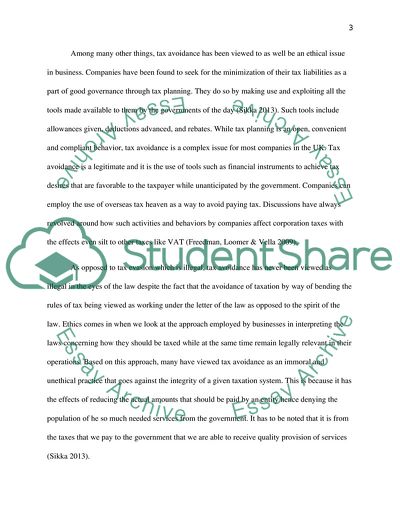Cite this document
(“Tax avoidance; a debate easily resolved Assignment”, n.d.)
Tax avoidance; a debate easily resolved Assignment. Retrieved from https://studentshare.org/finance-accounting/1634865-tax-avoidance-a-debate-easily-resolved
Tax avoidance; a debate easily resolved Assignment. Retrieved from https://studentshare.org/finance-accounting/1634865-tax-avoidance-a-debate-easily-resolved
(Tax Avoidance; A Debate Easily Resolved Assignment)
Tax Avoidance; A Debate Easily Resolved Assignment. https://studentshare.org/finance-accounting/1634865-tax-avoidance-a-debate-easily-resolved.
Tax Avoidance; A Debate Easily Resolved Assignment. https://studentshare.org/finance-accounting/1634865-tax-avoidance-a-debate-easily-resolved.
“Tax Avoidance; A Debate Easily Resolved Assignment”, n.d. https://studentshare.org/finance-accounting/1634865-tax-avoidance-a-debate-easily-resolved.


